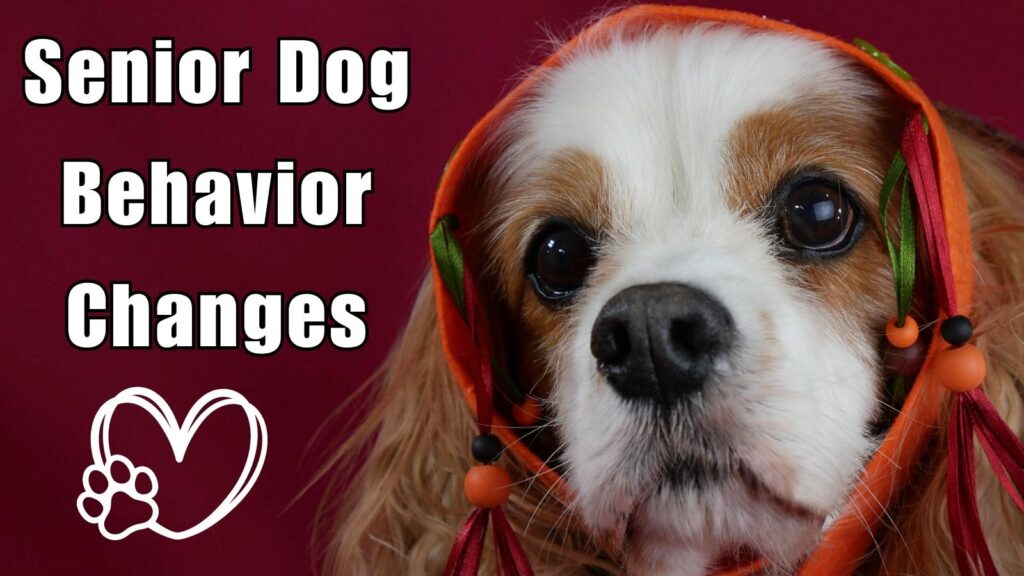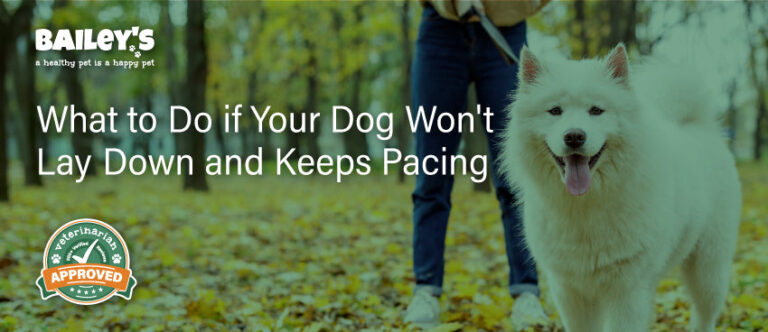If your senior dog is pacing and won’t lie down, it could indicate pain, discomfort, anxiety, or cognitive dysfunction. It’s essential to observe any other changes in behavior or health and consult a veterinarian as soon as possible for an accurate diagnosis and appropriate treatment.
Like humans, senior dogs’ bodies and minds undergo aging processes, and they may require extra care and attention. Understanding the possible reasons behind your dog’s pacing behavior and addressing them effectively is crucial for ensuring your furry friend’s well-being and quality of life.
We’ll explore the potential causes of pacing in senior dogs and provide helpful tips on managing and supporting them through their golden years.
Understanding Pacing And Restlessness
Older dogs may exhibit pacing and restlessness due to various reasons. Common causes include anxiety, pain, or discomfort. As dogs age, their behavior may change, and they might experience cognitive dysfunction leading to restlessness. It’s important to differentiate between normal behavior and any potential health issues. Keep an eye on changes in your senior dog’s behavior, and consult a vet if you notice persistent or concerning pacing.
Health Concerns Behind The Behavior
Pain and discomfort as primary causes: Pacing and restlessness in senior dogs can be indicative of pain and discomfort due to conditions such as arthritis, muscle stiffness, or other age-related ailments. It’s essential to monitor for any signs of physical distress and seek veterinary attention promptly.
Cognitive Dysfunction Syndrome in senior dogs: Older dogs may experience cognitive decline, leading to behavioral changes such as pacing and agitation. Understanding and addressing cognitive dysfunction is essential in managing these symptoms and improving the dog’s quality of life.
The role of vision and hearing decline: Diminished sensory abilities can contribute to a senior dog’s restlessness, as they may feel disoriented or insecure in their environment. Adapting their surroundings and providing supportive care is crucial to easing their anxiety and promoting comfort.
Assessing other potential medical issues: Various underlying medical conditions, including heart disease, gastrointestinal discomfort, and neurological disorders, could manifest in pacing behavior. Thorough veterinary evaluation is vital to uncover and address any additional health concerns contributing to the dog’s restlessness.
Easing Your Senior Dog’s Discomfort
As a loving pet owner, creating a comfortable environment for your senior dog is crucial to their well-being. Regular vet check-ups are essential to monitor their health and address any discomfort they may be experiencing. Adjusting their exercise and diet to accommodate their aging bodies is vital. Additionally, establishing comforting routines and implementing anxiety reduction strategies can help alleviate their stress. By providing a nurturing and supportive environment, you can help ease your senior dog’s discomfort and ensure they have a happy and comfortable life.

Credit: raisingyourpetsnaturally.com
Managing Nighttime Pacing
Strategies for helping your dog relax at night
If your senior dog is pacing and unable to lie down at night, there are several strategies you can try to help them relax. Creating a comfortable and familiar sleeping environment can help, such as providing a cozy bed and keeping the room dimly lit. You can also try playing calming music or using aromatherapy to promote relaxation. Additionally, consider using products specifically designed to reduce senior dog anxiety, such as calming pheromone diffusers or pressure wraps. If these measures prove ineffective, consulting with a veterinarian about potential medication options for managing your senior dog’s nighttime anxiety may be necessary.
Frequently Asked Questions For My Senior Dog Is Pacing And Won’t Lie Down
Why Is My Senior Dog Pacing And Not Lying Down?
Pacing in senior dogs could be due to discomfort, anxiety, or cognitive dysfunction. It’s essential to consult with a veterinarian to rule out any medical issues and provide appropriate care and comfort for your senior dog.
What Are Some Ways To Help My Senior Dog Relax And Rest?
Creating a comfortable and quiet environment, providing supportive bedding, regular exercise, and mental stimulation can help your senior dog relax and rest. Additionally, consider consulting with a veterinarian for potential medication or supplements to aid in relaxation.
How Can I Address My Senior Dog’s Pacing And Restlessness At Night?
If your senior dog is pacing and restless at night, consider adjusting their bedtime routine, providing a comfortable sleeping area, and offering calming supplements or medication under the guidance of a veterinarian. It’s crucial to address any underlying medical conditions contributing to this behavior.
Conclusion
Understanding and addressing your senior dog’s pacing and restlessness is vital. By providing comfort, a comfortable environment, and addressing any underlying health issues, you can help your senior dog find relief. Remember to consult with your veterinarian for personalized care and support.
With proper attention and care, you can ensure your senior dog’s well-being and happiness.



